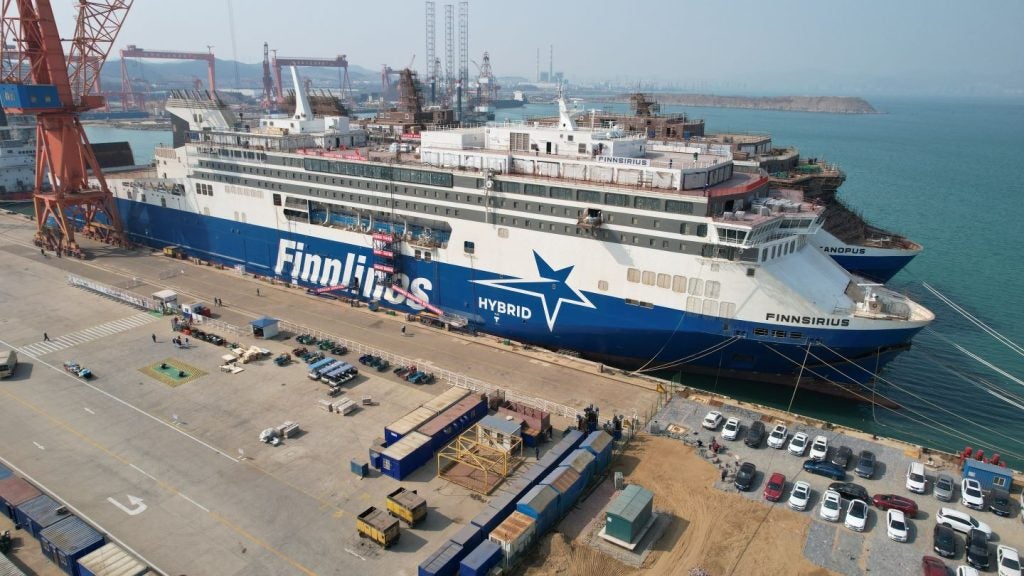Finnlines, a cargo and passenger operator in the Baltic and North Seas, has signed an agreement with NAPA, a maritime software and data solutions provider for the use of the latter's electronic logbooks technology.
The deal will see Finnlines’ fleet installed with electronic reporting, fleet monitoring and stability management systems on two new “Superstar-class” ro-pax (roll-on, roll-off passenger) vessels, designed by Knud E. Hansen and built at the Jinling shipyard in Nanjing, China.
The ships will both be fitted with NAPA’s electronic logbooks, which automate and streamline mandatory reporting and record-keeping required by the flag state and international conventions. This will help reduce the administrative burden for crews, save time and limit the risk of errors, Finnlines told Ship Technology.
Sister vessels Finnsirius and Finncanopus will be tracked by NAPA’s cloud systems, which will generate reports on safety, efficiency and compliance, among others, thanks to the new data capture and sharing tools.
The onboard crews will work with Finnlines staff onshore to analyse the data from the logs and Fleet Intelligence products to “identify opportunities for further optimisation”, according to the Finnish provider.
Finnlines technical superintendent Pasi Väänänen said: “Proper data capturing and analysis onboard our vessels is an essential foundation for progress.
“We are proud to pursue our digital journey with NAPA, which will provide our teams with the data they need not only to ensure compliance but also to further optimise our overall business operations moving forward.”
Meanwhile, NAPA executive vice-president for safety solutions Esa Henttinen pointed out the assistance electronic reporting can give to the decarbonisation process: “This partnership is a tangible example of the new opportunities that shipping can unlock with its onboard operational data, with efficiencies that go beyond navigation and route optimisation.
"Beyond mandatory reporting, this data can be integrated and analysed to deliver insights that will inform actions to deliver more efficient and sustainable operations.
“By streamlining various reporting on technical, environmental, vessel discharge and waste management, including MARPOL, ESG, IMO DCS, EU MRV and CII, we can monitor and boost efficiency on a wide range of operational factors, from fuel efficiency to waste management and safety, for example.”
Finnsirius is expected to be delivered in July 2023 and will enter operations in the autumn of 2023, while Finncanopus is scheduled to begin operations by the end of the year. Each will carry up to 1,100 passengers and 5,200 lane metres of cargo. The ro-pax vessels will operate on Finnlines routes between Finland and Sweden.









